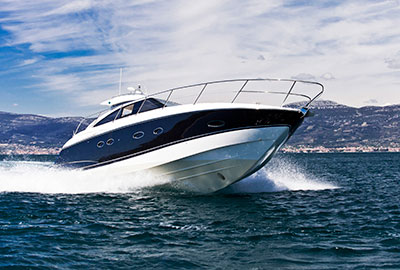THURSDAY, MAY 14, 2020
When 2020’s social distancing rules begin to wind down, it will soon be time for leisure activities once again. If water excursions are your thing, then you are probably excited to take your boat out on the water once again. However, getting there is half the fun. If you have to transport your boat on a trailer, then you need to keep safety and security in mind. What happens if a boat in transit sustains damage? Will your insurance coverage help? then you need to keep safety and security in mind. What happens if a boat in transit sustains damage? Will your insurance coverage help?
Damage to Boats in Transit
Many people don’t live on the water, but still own a boat. So, if you plan to transport the vessel on a trailer, then there is a chance that something might happen to it while on the road.
When you buy boat insurance, the policy will likely apply to damage your boat sustains both on and off the water. Therefore, if while hauling the boat, you have a wreck that damages the vessel, then insurance will typically pay. If your boat insurance includes physical damage coverage, then this coverage will apply.
If the wreck is not your fault, then the offending person’s car insurance might apply to the property damage. In this case, property damage liability insurance might apply. However, if the at-fault party doesn't have liability coverage, then you might have to look to alternative sources of coverage.
Insuring the Vessel’s Trailer
Your boat’s trailer is a separate item from the boat itself. Therefore, insurance will apply to it differently than it will to the vessel.
In some cases, your boat insurance will pay for the damage to the trailer. In other cases your car insurance might. However, policies might also exclude the trailer unless you list it on your coverage. Some people might be able to claim the trailer damage on their homeowners insurance. However, coverage for such possessions will likely face limits under that policy, too.
The best way to insure your vessel’s trailer is to inquire about buying boat trailer insurance. This is specific coverage for the trailer itself. While deductibles and coverage limits will apply, the policy will still apply to the trailer alone. You won’t have to struggle to receive adequate compensation for it from other policies.
The best thing to do when transporting your boat is to make sure you securely attach it to the trailer. You should also remember to drive safely at all times and take extra care to remember that you have a trailer attached to the vehicle. If this means taking extra time to get where you're going, you won’t regret it in the end.
Also Read: Boat Insurance Should be Separate From Your Home
No Comments
Post a Comment |
|
Required
|
|
Required (Not Displayed)
|
|
Required
|
All comments are moderated and stripped of HTML.
|
|
|
|
|
|
NOTICE: This blog and website are made available by the publisher for educational and informational purposes only.
It is not be used as a substitute for competent insurance, legal, or tax advice from a licensed professional
in your state. By using this blog site you understand that there is no broker client relationship between
you and the blog and website publisher.
|
Blog Archive
2025
2024
2023
2022
2021
2020
2019
2018
|
|